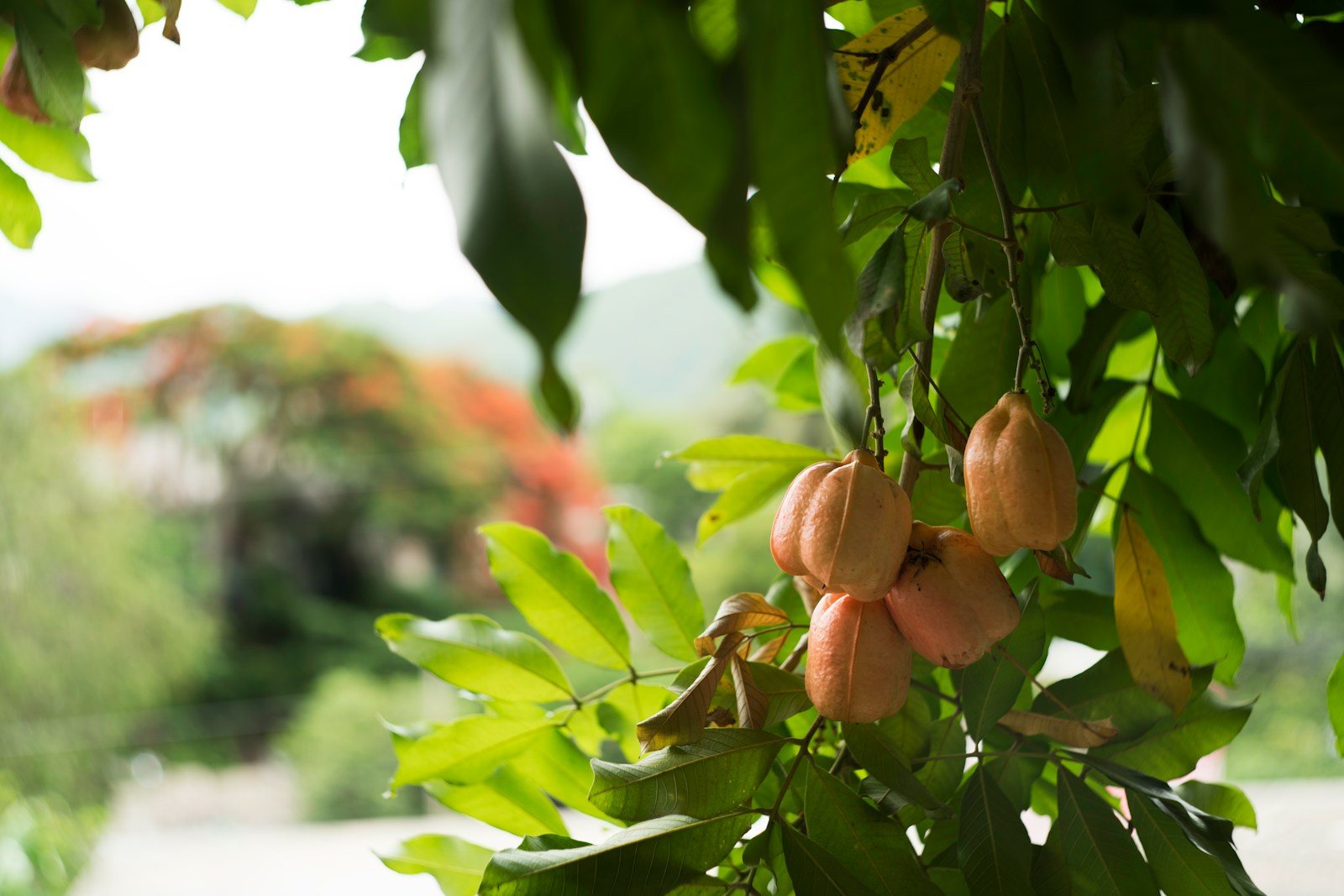Ackee, a tropical fruit native to West Africa, has become an integral part of Caribbean culture, particularly in Jamaica, where it is considered the national fruit. Its journey from Africa to the Caribbean is a testament to the rich history and cultural exchanges that have shaped the region’s identity. The fruit’s unique taste, texture, and nutritional profile have made it a staple in traditional Caribbean cuisine. Consuming ackee offers not only culinary delight but also significant nutritional benefits. However, it is essential to understand the proper handling and preparation methods due to potential health risks associated with its consumption when unripe or improperly prepared. This comprehensive exploration delves into the cultural significance of ackee in Caribbean cuisine, its nutritional advantages, safety considerations, and its role in promoting a balanced diet.
The Cultural and Culinary Significance of Ackee in the Caribbean
Historical Journey and Cultural Integration
Ackee (Blighia sapida) was introduced to the Caribbean in the 18th century, likely brought over on slave ships from West Africa. It quickly adapted to the Caribbean climate and soil, thriving in the region’s tropical environment. Over time, ackee became deeply embedded in Caribbean culture, especially in Jamaica. Its adoption reflects the fusion of African heritage with Caribbean traditions, symbolizing resilience and cultural preservation amidst the adversities of colonialism and slavery.
The fruit’s name, “ackee,” is derived from the West African Akan language, indicating its origins and the cultural connections maintained across continents. In Jamaica, ackee is more than just a food item; it represents national pride and is celebrated in festivals, songs, and art. The annual Ackee and Saltfish Festival showcases the importance of this fruit in the community, highlighting traditional recipes, cooking competitions, and cultural performances.
Ackee in Traditional Caribbean Cuisine
Ackee’s culinary versatility has made it a beloved ingredient in various Caribbean dishes. Its unique creamy texture and subtle, nutty flavor allow it to complement a range of flavors and spices commonly used in Caribbean cooking. The most iconic dish featuring ackee is Ackee and Saltfish, which is Jamaica’s national dish. This meal combines boiled ackee with salted codfish, onions, tomatoes, bell peppers, scotch bonnet peppers, thyme, and other spices. The result is a savory and flavorful dish that is often enjoyed for breakfast but is also suitable for any meal of the day.
Beyond Ackee and Saltfish, the fruit is incorporated into numerous recipes:
- Curries and Stews: Ackee adds a rich texture to vegetable curries and meat stews, absorbing spices and enhancing the overall flavor profile.
- Side Dishes: It can be sautéed with onions and peppers as a side dish or mixed with rice and peas for a hearty accompaniment.
- Vegetarian and Vegan Options: Ackee serves as an excellent plant-based alternative to eggs or meat due to its texture, making it popular in vegetarian and vegan adaptations of traditional recipes.
The culinary use of ackee reflects the resourcefulness and creativity inherent in Caribbean cooking, where local ingredients are maximized to create diverse and flavorful dishes. It also demonstrates the importance of communal eating and shared experiences in Caribbean culture, where meals are central to family gatherings and social events.
Nutritional Profile of Ackee
Ackee is not only celebrated for its taste but also for its rich nutritional content. The fruit provides a range of essential nutrients that contribute to overall health and well-being. Understanding its nutritional value offers insight into why ackee has been a dietary staple in the Caribbean for generations.
Macronutrient Content
Healthy Fats
Ackee is notable for its high content of healthy fats, primarily monounsaturated and polyunsaturated fatty acids. These include linoleic acid and palmitic acid. Healthy fats are crucial for several bodily functions:
- Cardiovascular Health: Monounsaturated fats help reduce low-density lipoprotein (LDL) cholesterol levels, commonly known as “bad” cholesterol, thereby lowering the risk of heart disease and stroke.
- Brain Function: Fats are essential for the development and maintenance of brain cells, supporting cognitive functions such as memory and learning.
- Absorption of Vitamins: Dietary fats aid in the absorption of fat-soluble vitamins (A, D, E, and K), enhancing their effectiveness in the body.
Protein
While not exceptionally high in protein, ackee provides a moderate amount that contributes to daily protein intake. Protein is essential for:
- Muscle Growth and Repair: Amino acids from proteins help build and repair muscle tissues.
- Enzymatic Functions: Proteins act as enzymes that facilitate biochemical reactions in the body.
- Immune Support: Antibodies, which are proteins, play a critical role in the immune system’s ability to fight infections.
Carbohydrates
Ackee contains carbohydrates that serve as a primary energy source for the body. The fruit’s carbohydrate content is relatively low compared to other starchy foods, making it suitable for those monitoring their carbohydrate intake.
Micronutrient Content
Vitamins
- Vitamin C: Ackee is a good source of vitamin C (ascorbic acid), an antioxidant that protects cells from damage caused by free radicals. Vitamin C is vital for:
- Immune Function: Enhancing the immune system’s ability to fend off illnesses.
- Collagen Production: Supporting skin health, wound healing, and maintaining the integrity of blood vessels.
- Iron Absorption: Improving the absorption of non-heme iron from plant-based foods.
- Vitamin A: Present in the form of beta-carotene, vitamin A is essential for:
- Vision: Maintaining healthy eyesight, especially in low-light conditions.
- Cell Growth: Supporting the growth and differentiation of cells.
- Immune Response: Enhancing the function of white blood cells.
- Niacin (Vitamin B3): Niacin plays a role in:
- Metabolism: Converting food into usable energy.
- Nervous System Health: Supporting nerve function and communication.
- Digestive Health: Maintaining a healthy digestive tract.
- Folate (Vitamin B9): Folate is crucial for:
- DNA Synthesis: Assisting in the creation and repair of DNA and RNA.
- Cell Division: Important during periods of rapid growth, such as pregnancy and infancy.
- Preventing Anemia: Aiding in the production of healthy red blood cells.
Minerals
- Potassium: Ackee is rich in potassium, an electrolyte that:
- Regulates Fluid Balance: Maintaining proper hydration and electrolyte levels.
- Supports Heart Function: Ensuring proper heart rhythm and muscle contractions.
- Lowers Blood Pressure: Counteracting the effects of sodium to reduce hypertension risk.
- Calcium: Essential for:
- Bone and Teeth Health: Building and maintaining strong bones and teeth.
- Muscle Function: Facilitating muscle contractions, including the heartbeat.
- Nerve Transmission: Enabling the transmission of nerve impulses.
- Iron: Necessary for:
- Oxygen Transport: Forming hemoglobin in red blood cells to carry oxygen throughout the body.
- Energy Metabolism: Supporting metabolic processes that produce energy.
- Immune Function: Enhancing the body’s ability to fight infections.
- Zinc: Involved in:
- Immune Response: Regulating immune cell function.
- Wound Healing: Promoting skin integrity and repair.
- Protein Synthesis: Facilitating the creation of proteins and DNA.
Dietary Fiber
Ackee contains dietary fiber, which offers numerous health benefits:
- Digestive Health: Fiber promotes regular bowel movements and prevents constipation.
- Blood Sugar Control: Slows the absorption of sugar, helping to regulate blood glucose levels.
- Satiety: Increases the feeling of fullness, which can aid in weight management.
Antioxidant Properties
The fruit is rich in antioxidants, including vitamin C and various phytochemicals, which help protect the body’s cells from oxidative stress. This protection can reduce the risk of chronic diseases such as:
- Heart Disease: Preventing oxidative damage to cholesterol particles, reducing plaque formation in arteries.
- Cancer: Neutralizing free radicals that can lead to DNA mutations and cancerous growths.
- Neurodegenerative Diseases: Protecting neurons from oxidative damage associated with conditions like Alzheimer’s disease.
Health Benefits of Consuming Ackee
Incorporating ackee into the diet can contribute to overall health and wellness. Its nutritional profile supports various bodily functions and may offer protective effects against certain health conditions.
Cardiovascular Health
The combination of healthy fats, potassium, fiber, and antioxidants in ackee supports heart health in several ways:
- Cholesterol Management: Monounsaturated and polyunsaturated fats help reduce LDL cholesterol levels while maintaining or increasing high-density lipoprotein (HDL) cholesterol, known as “good” cholesterol.
- Blood Pressure Regulation: Potassium aids in vasodilation, easing tension in blood vessel walls and lowering blood pressure.
- Anti-Inflammatory Effects: Antioxidants reduce inflammation, a contributing factor to heart disease.
Immune System Support
Vitamins A and C in ackee enhance immune function by:
- Stimulating Immune Cells: Supporting the production and activity of white blood cells.
- Antioxidant Defense: Protecting immune cells from oxidative damage.
- Mucosal Barrier Maintenance: Vitamin A helps maintain the integrity of mucous membranes, serving as a barrier against pathogens.
Energy Production and Metabolism
B vitamins like niacin and folate are essential for:
- Energy Conversion: Assisting enzymes in converting carbohydrates, fats, and proteins into energy.
- Nervous System Function: Supporting neurotransmitter synthesis and nerve signal transmission.
- Reducing Fatigue: Preventing deficiencies that can lead to tiredness and weakness.
Bone Health
Calcium and phosphorus in ackee contribute to:
- Bone Mineralization: Strengthening bones and teeth by forming hydroxyapatite crystals.
- Preventing Osteoporosis: Maintaining bone density and reducing the risk of fractures.
- Muscle Function: Ensuring proper muscle contractions, including those in the heart.
Digestive Health
Dietary fiber in ackee promotes:
- Regularity: Enhancing bowel movements and preventing constipation.
- Gut Microbiome Balance: Feeding beneficial bacteria in the colon, which produce short-chain fatty acids that support colon health.
- Weight Management: Increasing satiety and reducing overall calorie intake.
Safety Considerations When Consuming Ackee
While ackee offers numerous nutritional benefits, it is crucial to handle and prepare the fruit properly due to the presence of toxic compounds when unripe or improperly processed.
Hypoglycin Toxicity
Ackee contains two naturally occurring toxins:
- Hypoglycin A
- Hypoglycin B
These toxins are found in high concentrations in unripe ackee, particularly in the seeds and the arils (the fleshy part of the fruit). Consumption of hypoglycin A and B can lead to Jamaican Vomiting Sickness, characterized by:
- Severe Hypoglycemia: Dangerously low blood sugar levels due to the inhibition of fatty acid oxidation, which impairs glucose production.
- Symptoms: Vomiting, abdominal pain, dizziness, sweating, seizures, coma, and in severe cases, death.
Proper Harvesting and Preparation
To safely enjoy ackee, the following precautions must be taken:
- Natural Ripening: Only consume ackee that has opened naturally on the tree. Forced opening or consuming unripe ackee increases the risk of toxicity.
- Seed and Membrane Removal: Before cooking, remove the black seeds and the pinkish-red membrane (raphe) surrounding the edible yellow arils, as these parts contain high levels of toxins.
- Thorough Cooking: Boil the ackee arils for at least 10 minutes and discard the water. Cooking helps reduce any residual toxins by denaturing the hypoglycin compounds.
- Avoid Raw Consumption: Never eat ackee raw, as cooking is necessary to reduce toxin levels to safe amounts.
- Storage: Properly store ackee to prevent spoilage, which can increase the risk of bacterial contamination.
Regulatory Measures and Commercial Products
Due to the potential risks, many countries have regulations regarding the importation and sale of ackee:
- Canned Ackee: Commercially canned ackee is processed under strict guidelines to ensure safety, making it a convenient and safe option for consumers outside the Caribbean.
- Import Controls: Some countries restrict or monitor the importation of fresh ackee to prevent the distribution of unripe or improperly processed fruit.
Awareness and Education
Educating the public about the proper handling and preparation of ackee is essential:
- Community Programs: Local governments and health organizations often provide resources and training on safe ackee consumption.
- Labeling: Clear instructions on packaging for commercial ackee products help consumers understand how to prepare the fruit safely.
Incorporating Ackee into a Balanced Diet
Ackee can be a valuable addition to a nutritious and balanced diet when consumed safely and in moderation.
Culinary Uses and Recipe Ideas
- Ackee and Saltfish: Enjoy the traditional Jamaican dish by combining boiled ackee with sautéed salted codfish, onions, tomatoes, bell peppers, scotch bonnet peppers, and spices. Serve with breadfruit, dumplings, or rice.
- Vegan Ackee Scramble: Use ackee as a plant-based alternative to scrambled eggs. Sauté with onions, peppers, tomatoes, and spices for a hearty breakfast.
- Ackee Salad: Mix boiled ackee with fresh vegetables, herbs, and a light dressing for a nutritious salad.
- Ackee Curry: Incorporate ackee into a vegetable curry with coconut milk, spices, and legumes for a flavorful meal.
- Side Dishes: Add ackee to rice dishes, grain bowls, or as a side to grilled meats and seafood.
Nutritional Balance and Moderation
- Portion Control: While ackee is nutritious, it’s important to consume it in appropriate portions, balancing it with other food groups.
- Diverse Diet: Include a variety of fruits, vegetables, whole grains, lean proteins, and healthy fats to ensure a comprehensive intake of essential nutrients.
- Mindful Eating: Be attentive to the body’s hunger and fullness cues, enjoying ackee as part of satisfying and wholesome meals.
Pairing with Complementary Foods
- Spices and Herbs: Enhance the flavor of ackee with traditional Caribbean spices like thyme, allspice, nutmeg, and scotch bonnet peppers.
- Healthy Fats: Cook ackee with heart-healthy oils like olive or coconut oil to boost its beneficial fat content.
- Proteins: Combine ackee with lean proteins such as fish, chicken, beans, or tofu to create balanced meals.
The Cultural Importance and Preservation of Tradition
Consuming ackee is deeply rooted in Caribbean culture, representing more than just a dietary choice—it is an expression of heritage, identity, and community.
Social and Cultural Significance
- Family Traditions: Preparing and sharing ackee dishes is often a family affair, passed down through generations, strengthening familial bonds.
- Festivals and Celebrations: Ackee features prominently in cultural events, festivals, and national holidays, celebrating Caribbean heritage and culinary artistry.
- Symbol of National Pride: In Jamaica, ackee symbolizes national identity and resilience, reflecting the country’s history and cultural evolution.
Culinary Tourism
- Attracting Visitors: The unique cuisine featuring ackee draws tourists interested in experiencing authentic Caribbean flavors.
- Culinary Education: Cooking classes and food tours highlight ackee’s role in traditional dishes, promoting cultural exchange and appreciation.
Preservation of Culinary Heritage
- Documentation of Recipes: Recording traditional ackee recipes ensures that cultural knowledge is preserved for future generations.
- Promotion of Sustainable Practices: Encouraging sustainable harvesting and cultivation of ackee trees supports environmental conservation and food security.
Conclusion
Consuming ackee is indeed beneficial for traditional Caribbean cuisine and nutrition. The fruit enriches the culinary landscape with its unique taste and texture, offering a versatile ingredient that complements a variety of dishes. Its rich nutritional profile contributes to a balanced diet, providing essential vitamins, minerals, healthy fats, and antioxidants that support overall health and well-being. However, it is imperative to handle and prepare ackee properly to mitigate potential health risks associated with its natural toxins when unripe or improperly processed.
Embracing ackee in the diet not only offers nutritional advantages but also honors and preserves the rich cultural traditions of the Caribbean. It symbolizes a connection to history, community, and identity, making it a cherished component of Caribbean heritage. By appreciating ackee’s cultural significance and nutritional benefits while adhering to safety guidelines, individuals can enjoy this remarkable fruit as a wholesome and meaningful part of their culinary experience.




